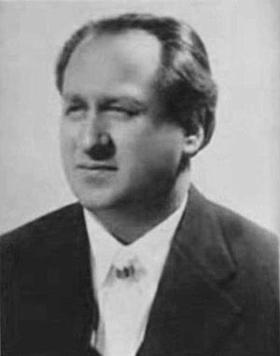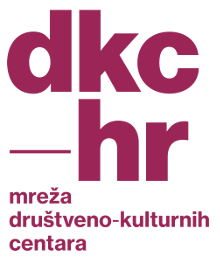
Croatia, officially the Republic of Croatia, is a country in Central and Southeast Europe, on the coast of the Adriatic Sea. It borders Slovenia to the northwest, Hungary to the northeast, Serbia to the east, Bosnia and Herzegovina and Montenegro to the southeast, and shares a maritime border with Italy to the west. Its capital and largest city, Zagreb, forms one of the country's primary subdivisions, with twenty counties. Other major urban centers include Split, Rijeka and Osijek. The country spans 56,594 square kilometres, and has a population of nearly 3.9 million.
CARNET is the national research and education network of Croatia. It is funded from the government budget and it operates from offices in Zagreb and five other cities.
Croatian science fiction consists mostly of literature, novels and stories published in various magazines and story collections, and some movies and graphic novels. The first Croatian occurrence of science fiction happened in 1919 and since then, the region has seen the birth and death of several countries/states. This dynamic left a mark on the genre.

Hrvatska radiotelevizija, or Croatian Radiotelevision, is a Croatian public broadcasting company. It operates several radio and television channels, over a domestic transmitter network as well as satellite. HRT is divided into three joint companies – Croatian Radio, Croatian Television and Music Production, which includes three orchestras and a choir.

Croatian Railways was the national railway company of Croatia. It was a member of the International Union of Railways (UIC). The UIC Country Code for Croatia is 78. The Croatian rail network carried 24.230 million passengers in 2023.
Novo Nevesinje is a settlement in the region of Baranja, Croatia. Administratively, it is located in the Petlovac municipality within the Osijek-Baranja County. Population is 63 people.

The Art Workshop Lazareti in Dubrovnik, Croatia, is an independent cultural center for contemporary art and performing arts venue that hosts artists, theorists, writers, activists and promotes an active and investigative approach to contemporary art and culture, society, politics and its inter-relations. Its club also hosted wide range of programs from mainstream to alternative music programs.

The Holocaust in the Independent State of Croatia involved the genocide of Jews, Serbs and Romani within the Independent State of Croatia, a fascist puppet state that existed during World War II, led by the Ustaše regime, which ruled an occupied area of Yugoslavia including most of the territory of modern-day Croatia, the whole of modern-day Bosnia and Herzegovina and the eastern part of Syrmia (Serbia). Of the 39,000 Jews who lived in the NDH in 1941, the United States Holocaust Memorial Museum states that more than 30,000 were murdered. Of these, 6,200 were shipped to Nazi Germany and the rest of them were murdered in the NDH, the vast majority in Ustaše-run concentration camps, such as Jasenovac. The Ustaše were the only quisling forces in Yugoslavia who operated their own extermination camps for the purpose of murdering Jews and members of other ethnic groups.

Women's Network Croatia is a network of non-governmental organizations based in Zagreb, Croatia. The network is engaged in advocacy and protection of women's rights. Since its formal establishment in 1996 the network brings together numerous feminist organizations from Croatia. In October 2022 organization's coordinator Bojana Genov criticized government's plan for gender equality and prevention of gender based violence as completely inadequate.

Bernard Grüner was a Croatian-Jewish composer, hazzan of the Dohány Street Synagogue and chief hazzan of the Jewish Community in Zagreb.
Darko Lukić is a Croatian theatre scholar, writer, cultural theorist and playwright living and working in Germany. As an expert in multi-disciplinary expert pool for capacity building for European Capitals of Culture worked at audience development program ADESTE+. and Rijeka, European capital of Culture 2020. Lukić also publishes scientific papers and participates in international conferences and seminars and translates from English and Spanish language. He is the member of Programme Board of Maribor 2012, European Capital of Culture 2012. He was a member of the European jury of theatrologists for “Premio Europa per il teatro” award (2009), member of the jury for “Marko Fotez” theatre award of HAZU (Croatian Academy of Science and Arts, president of the Board of Gavella Theatre, editor in Hrvatsko glumište magazine HDDU, artistic advisor of HAVC, Hrvatski audiovizualni centar, artistic advisor of Ministry of Culture - Ministarstvo kulture RH and HRT for film, member of the Cultural Council for Performing Arts of Croatian Ministry of Culture, president of the Theatre Committee of the City of Zagreb, member of the Council for International Cultural Cooperation of the City of Zagreb, and President of the Cultural Council for International Cooperation Ministry of Culture - Ministarstvo kulture RH, and member of Croatian centre of PEN International, member of IETM, CAE, ENCATC, Memory Studies Association, IFTR and EASTAP.
The 2017–18 Croatian First Football League was the 27th season of the Croatian First Football League, the national championship for men's association football teams in Croatia, since its establishment in 1992. The season started on 14 July 2017 and ended on 19 May 2018. Rijeka were the defending champions, who have won their first Croatian league title and ended Dinamo Zagreb's consecutive 11-season reign the previous season. Dinamo Zagreb ultimately reclaimed the title by May 2018, their 19th since the league's inception, with Rijeka ending close second.
Željko Karaula is a Croatian historian and author. His scientific focus is on modern Croatian and Yugoslavian history, particularly the history of his hometown and the surrounding area. He promotes the development of Croatian-Montenegrin scientific-cultural values.

Miranda Veljačić is a Croatian architect, researcher and cultural worker.
The 2021–22 season was the 111th season in the existence of GNK Dinamo Zagreb and the club's 31st consecutive season in the top flight of Croatian football. In addition to the domestic league, Dinamo Zagreb participated in this season's editions of the Croatian Cup, the UEFA Champions League and the UEFA Europa League.
The 2021–22 season was the 76th season in HNK Rijeka’s history. It was their 31st successive season in the Croatian First Football League, and 48th successive top tier season.
The 2021–22 season is the 50th season in the existence of HNK Šibenik and the 16th consecutive season in the top flight of Croatian football. In addition to the domestic league, HNK Šibenik participated in this season's edition of the Croatian Cup.

Shadow Casters is a non-profit organization from Zagreb (Croatia) working as an international artistic and production platform for interdisciplinary cooperations in intermedia arts in urban context. It was founded in 2002 by artists Boris Bakal and Željko Serdarević, with Katarina Pejović, Stanko Juzbašić, Vanja Žanko, Srećko Horvat, Sandra Uskoković, Leo Vukelić and other collaborators. Since 2006 they are a Clubture Network member.

The Network of Social-Cultural Centers is a national network of unions of associations, platforms and associations in the Republic of Croatia that advocate the establishment of an institutional framework for social-cultural centers. Social and cultural centers are institutions jointly managed by civil society and the public sector. Such centers provide the local community with a sense of belonging and solidarity and are unconventional places for socializing, relaxing, talking, meeting, producing, presenting, educating, consulting and informing.












